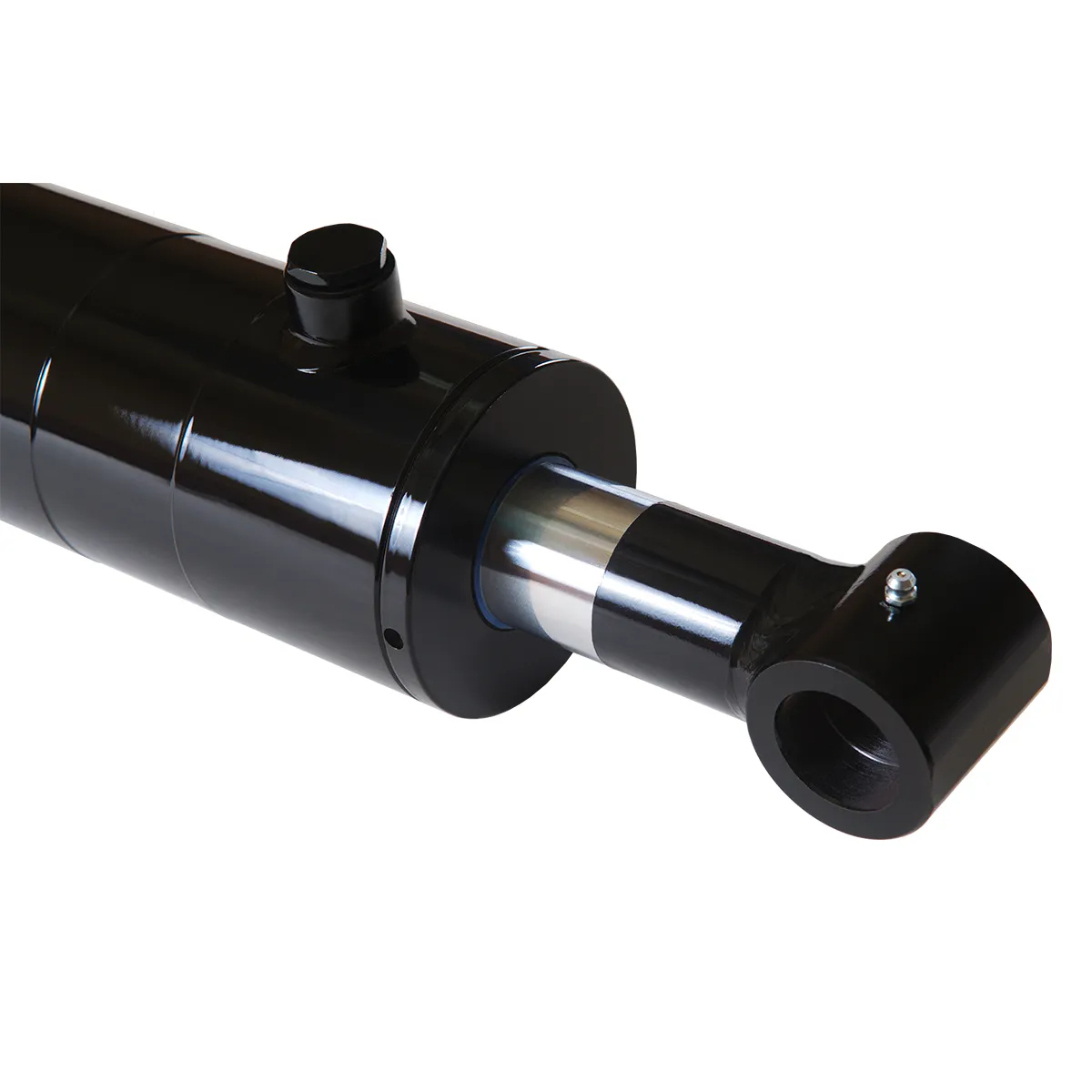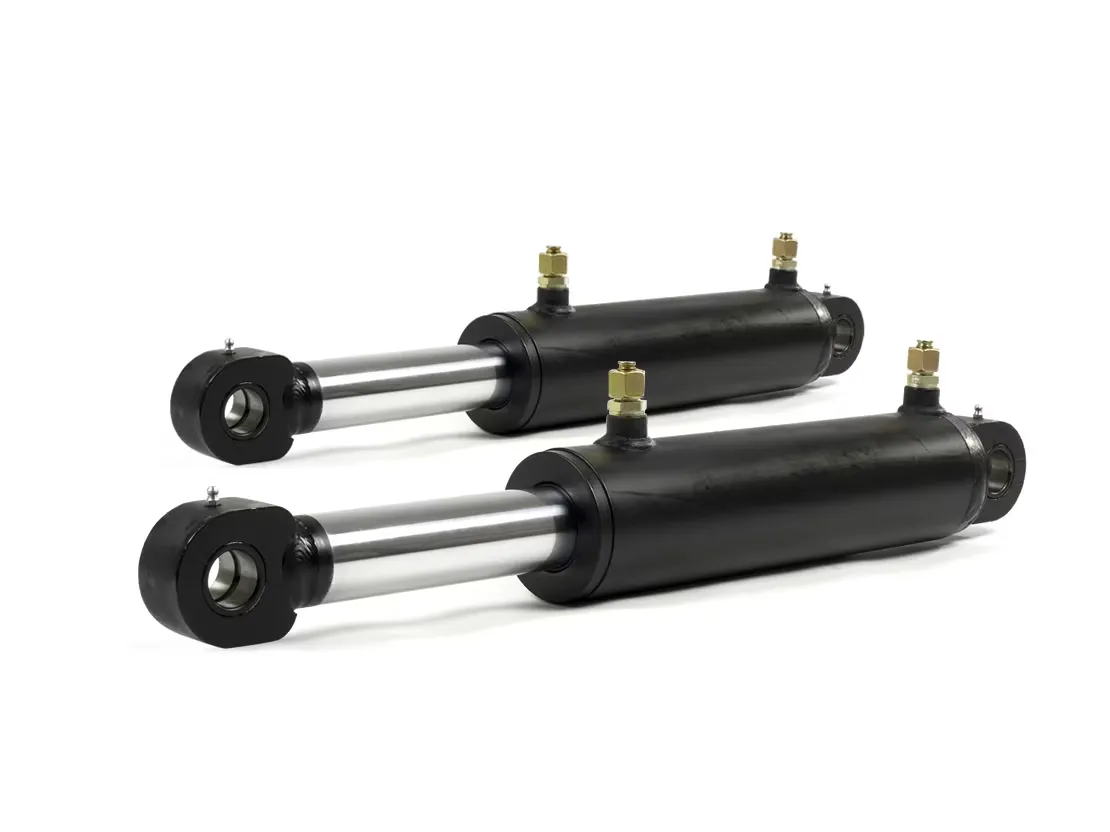The Importance of Industrial Hydraulic Cylinders in Customization
Introduction to Hydraulic Cylinder in Industrial Environment
Hydraulic cylinders play a crucial role in various industrial applications, providing powerful and efficient linear motion. These devices use the force of hydraulic fluid to generate motion, making them ideal for heavy-duty tasks in industries such as manufacturing, construction, mining, and agriculture.
Key Components and Structure
A hydraulic cylinder consists of several key components, including a cylinder barrel, piston, piston rod, seals, and hydraulic connections. The cylinder barrel houses the piston, which divides the internal space into two chambers – the cap end and rod end. Seals prevent leakage of hydraulic fluid, ensuring smooth operation.
Principle Overview of Control Cylinder Operation
The operation of a hydraulic cylinder is based on Pascal’s Law, which states that pressure exerted on a confined fluid is transmitted equally in all directions. When hydraulic fluid is pumped into one chamber, it pushes the piston, creating linear motion. Control valves regulate the flow of fluid, allowing precise control of the cylinder’s movement.
Types of Hydraulic Cylinders
Single Acting Cylinder
A single-acting cylinder uses hydraulic pressure to extend the piston, while an external force (such as gravity or a spring) retracts it. These cylinders are commonly used in applications where the load is only required to be moved in one direction.
Double Acting Cylinder
Double-acting cylinders use hydraulic pressure to both extend and retract the piston, providing more control over the motion. These cylinders are versatile and suitable for applications requiring bi-directional movement.
Telescopic Cylinder
Telescopic cylinders consist of nested sleeves that extend and retract to provide a long stroke length in a compact space. They are commonly used in applications where a long stroke is required but space is limited.
Differential Cylinder
Differential cylinders have different effective areas on the piston sides, allowing for unequal extension and retraction speeds. These cylinders are used in applications where varying speeds are required for different tasks.
Advantages of Industrial Hydraulic Cylinders
1. High Power and Efficiency: Hydraulic cylinders can generate immense force, making them suitable for heavy-duty tasks.
2. Precise Control: With the use of control valves, hydraulic cylinders offer precise and smooth motion control.
3. Durability: Hydraulic cylinders are built to withstand harsh industrial environments, ensuring long-lasting performance.
4. Versatility: The ability to customize hydraulic cylinders to specific requirements makes them adaptable to a wide range of applications.
5. Safety: Hydraulic cylinders operate smoothly and reliably, reducing the risk of accidents in industrial settings.
Industries Using Industrial Hydraulic Cylinders
Manufacturing
In manufacturing plants, hydraulic cylinders are used in machinery such as presses, injection molding machines, and metal forming equipment to provide precise and powerful motion control.
Construction
In the construction industry, hydraulic cylinders are used in equipment like excavators, cranes, and bulldozers to lift heavy loads, move materials, and perform various construction tasks efficiently.
Mining
In mining operations, hydraulic cylinders are essential components of machinery used for drilling, crushing, and transporting materials in challenging mining environments.
Agriculture
Agricultural machinery such as tractors, harvesters, and plows utilize hydraulic cylinders for tasks like lifting, tilting, and steering, enhancing productivity and precision in farming operations.
Other Industrial Sectors
Hydraulic cylinders find applications in various other industrial sectors such as marine, aerospace, and automotive industries, where precise and powerful motion control is essential for efficient operations.
Selecting the Right Industrial Hydraulic Cylinder
When selecting an industrial hydraulic cylinder for a specific application, factors such as load capacity, stroke length, bore size, mounting style, and operating pressure must be considered. Matching the performance of the cylinder to the application requirements is crucial for optimal functionality.
Maintenance and Care of Hydraulic Cylinders
Regular maintenance of industrial hydraulic cylinders is essential to ensure optimal performance and longevity. Inspection, lubrication, and cleaning are key practices to prevent wear and damage, extending the service life of the cylinders.
Installation Guide for Hydraulic Cylinders
Proper installation of hydraulic cylinders is critical for their efficient operation. Ensure correct alignment, secure mounting, and proper connection of hydraulic lines to prevent leaks and ensure safe performance.
Maintenance Tasks for Hydraulic Cylinders
Cleaning
Regularly clean the external surfaces of hydraulic cylinders to remove dirt, debris, and contaminants that can cause damage to seals and affect performance.

Lubrication
Apply appropriate lubricants to the moving parts of hydraulic cylinders to reduce friction, wear, and corrosion, ensuring smooth operation and extending the life of the components.
Checking Wear
Periodically inspect hydraulic cylinders for signs of wear, such as leaks, scratches, or dents, and replace worn components to prevent failures and maintain optimal performance.
Fault Diagnosis and Common Problems
Common issues with hydraulic cylinders include leaks, insufficient pressure, slow operation, and erratic movement. Proper diagnosis of faults and timely repairs are essential to prevent downtime and ensure the reliable operation of hydraulic systems.
Preventive Measures for Optimal Performance
To minimize potential problems and optimize the performance of industrial hydraulic cylinders, implement preventive measures such as regular maintenance, timely repairs, and proper training for operators to ensure safe and efficient operation.
How to Choose the Right Industrial Hydraulic Cylinder
When selecting an industrial hydraulic cylinder, consider factors such as application requirements, operating conditions, performance expectations, and budget constraints to choose the most suitable cylinder for your specific needs.
Exploring Factors in Cylinder Selection
Factors to consider in the selection of industrial hydraulic cylinders include load capacity, stroke length, operating pressure, mounting style, and environmental conditions. Evaluate these factors carefully to ensure the chosen cylinder meets the performance requirements of your application.
Long-Tail Keywords for SEO Articles
1. “Custom Hydraulic Cylinder Solutions for Industrial Applications”
2. “Enhancing Performance with Tailored Hydraulic Cylinder Designs”
3. “Optimizing Efficiency Through Customized Hydraulic Cylinder Solutions”
Our Company
We are a leading hydraulic cylinder manufacturer specializing in customized solutions for industrial applications. With a comprehensive product line, international certifications, and expert customization services, we cater to diverse industrial needs both domestically and internationally.

Our company prides itself on our commitment to quality, reliability, and customer satisfaction. We offer personalized services, state-of-the-art production equipment, and dedicated after-sales support to ensure the success of every project we undertake.
For all your industrial hydraulic cylinder needs, trust our expertise and experience to deliver tailored solutions that exceed your expectations.
Author: lyl
